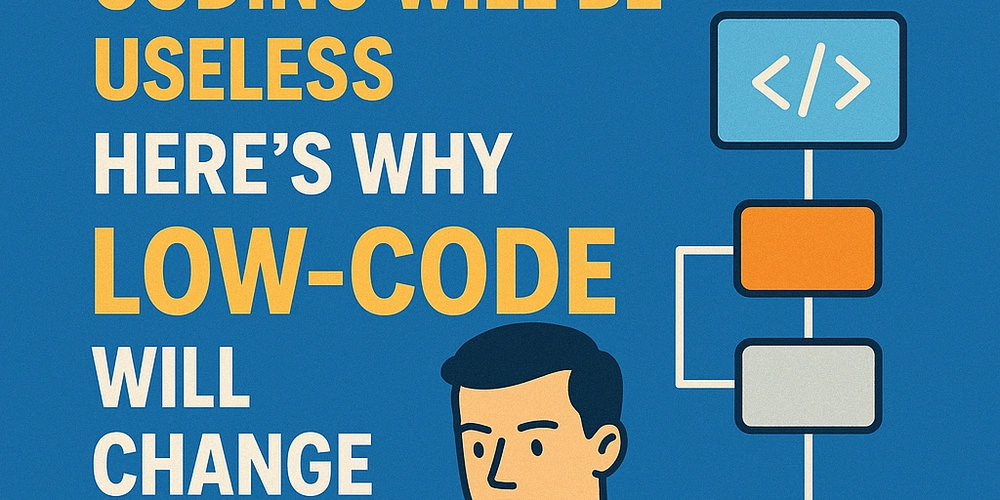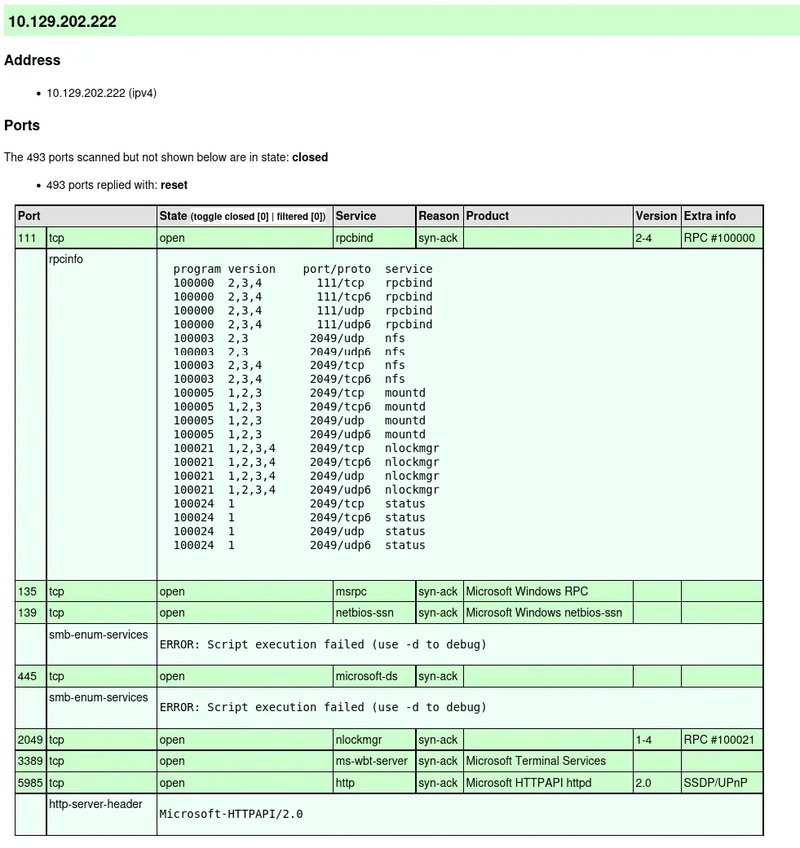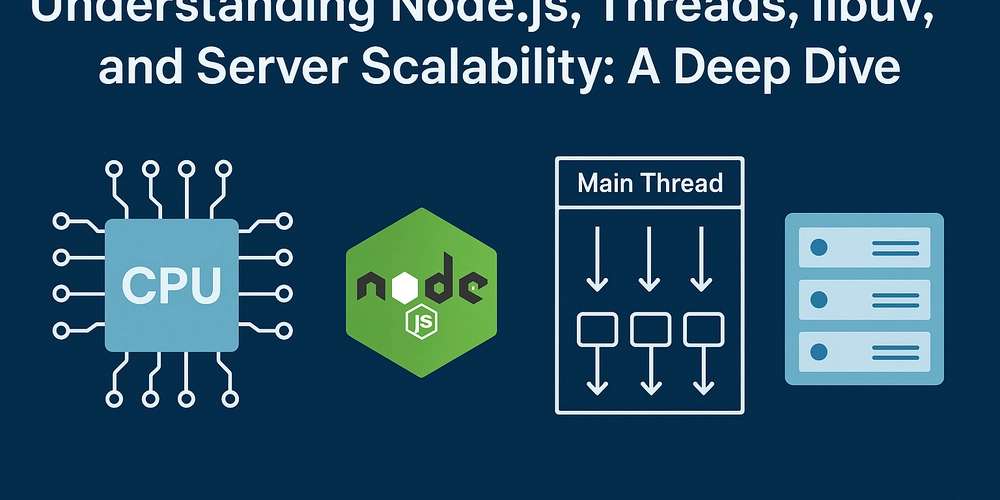In 5 Years, Coding Will Be Useless: Here’s Why Low-Code Will Change Everything
Introduction: The End of Traditional Development as We Know It For decades, knowing how to code was a valuable skill, a passport to high-paying careers, and an exclusive power held by developers. But today, a radical shift is happening: low-code is eliminating the need to write code altogether. Why spend years learning Python, Java, or JavaScript if an AI or a low-code platform can build an application in just a few clicks? The truth is harsh: in five years, coding will be useless for 90% of business applications. 1. Why Traditional Development Is Doomed 1.1. Building Software Takes Too Long A traditionally coded application takes months or even years to develop. Low-code reduces development time by 80% to 90%. Businesses don’t want to wait anymore—they need solutions fast. 1.2. Companies Can’t Afford to Pay for Code Anymore Hiring a developer costs between $50,000 and $150,000 per year. A powerful low-code platform costs a few hundred dollars per month. Businesses no longer want to pay a team of developers for work that AI can generate in seconds. 1.3. Most Software No Longer Needs to Be Coded 90% of business applications only require integrations and automation, not custom code. Softyflow, OutSystems, and Mendix already allow companies to build apps with zero coding. Why write code if a tool can generate a fully functional application in minutes? 2. How Low-Code Is Replacing Everything 2.1. AI and Low-Code Are Outperforming Developers GitHub Copilot is already generating half of the code in some projects. Softyflow and other platforms automate entire workflows without human intervention. Businesses don’t care about code—they care about fast, effective results. 2.2. Low-Code = Fewer Errors, More Speed Humans make syntax mistakes, forget details, and spend hours debugging. Low-code platforms follow strict rules and generate flawless code. Less time debugging means more productivity. 2.3. Low-Code Isn’t Just Simplifying Code—It’s Eliminating It People used to think that low-code was just a way to speed up development. Today, it completely replaces traditional coding for 80% of applications. It’s no longer about making coding easier—it’s about eliminating the need to code at all. 3. The Future Role of Developers: Adapt or Become Obsolete 3.1. Developers Will No Longer Be Coders Writing code will become a niche skill, reserved for very specific cases. The developers of the future will be solution architects, not just coders. Knowing how to use low-code will be more important than knowing a programming language. 3.2. Those Who Refuse to Evolve Will Be Replaced Businesses won’t be hiring coders anymore—they’ll look for automation and integration experts. Developers who stick to manual coding will become obsolete. Low-code + AI = the end of traditional software development. 4. What You Need to Do to Stay Relevant 4.1. Stop Focusing on Raw Coding Python, Java, and JavaScript are no longer differentiators. Instead, learn how to automate, orchestrate, and optimize with low-code. 4.2. Master Low-Code Platforms Now Softyflow, OutSystems, Mendix, Power Automate… These tools are becoming essential. Companies want professionals who can leverage these technologies, not outdated manual coders. 4.3. Become a Development Strategist, Not Just an Executor Coding is just a tool. The most successful developers are those who know how to use it wisely. In five years, the best tech professionals won’t be the ones writing code—they’ll be the ones avoiding it. Conclusion: Coding Is a Dying Skill The world is evolving, and so is software development. Companies want fast, efficient, and error-free solutions. They don’t want to wait months for an application. In five years, coding will no longer be the standard—it will be the exception. The only developers who will still have value will be those who have moved beyond coding and embraced low-code and automation. The question is no longer "Will low-code replace coding?". The real question is "Are you ready to evolve, or will you be left behind?" FAQ: Answers to the Most Common Questions 1. Will coding really disappear? No, but it will become unnecessary for most applications. Low-code will replace 80% to 90% of software development needs. 2. Will businesses still need developers? Yes, but not to write code manually. They will need specialists who can oversee and optimize automated solutions. 3. Is low-code limited? No. Today, it allows companies to build complex applications, integrate systems, and automate workflows without writing a single line of code. 4. Should I still learn to code? It depends. If you want to be an executor, yes. If you want a career that grows with technology, learn

Introduction: The End of Traditional Development as We Know It
For decades, knowing how to code was a valuable skill, a passport to high-paying careers, and an exclusive power held by developers. But today, a radical shift is happening: low-code is eliminating the need to write code altogether.
Why spend years learning Python, Java, or JavaScript if an AI or a low-code platform can build an application in just a few clicks?
The truth is harsh: in five years, coding will be useless for 90% of business applications.
1. Why Traditional Development Is Doomed
1.1. Building Software Takes Too Long
A traditionally coded application takes months or even years to develop.
Low-code reduces development time by 80% to 90%.
Businesses don’t want to wait anymore—they need solutions fast.
1.2. Companies Can’t Afford to Pay for Code Anymore
Hiring a developer costs between $50,000 and $150,000 per year.
A powerful low-code platform costs a few hundred dollars per month.
Businesses no longer want to pay a team of developers for work that AI can generate in seconds.
1.3. Most Software No Longer Needs to Be Coded
90% of business applications only require integrations and automation, not custom code.
Softyflow, OutSystems, and Mendix already allow companies to build apps with zero coding.
Why write code if a tool can generate a fully functional application in minutes?
2. How Low-Code Is Replacing Everything
2.1. AI and Low-Code Are Outperforming Developers
GitHub Copilot is already generating half of the code in some projects.
Softyflow and other platforms automate entire workflows without human intervention.
Businesses don’t care about code—they care about fast, effective results.
2.2. Low-Code = Fewer Errors, More Speed
Humans make syntax mistakes, forget details, and spend hours debugging.
Low-code platforms follow strict rules and generate flawless code.
Less time debugging means more productivity.
2.3. Low-Code Isn’t Just Simplifying Code—It’s Eliminating It
People used to think that low-code was just a way to speed up development.
Today, it completely replaces traditional coding for 80% of applications.
It’s no longer about making coding easier—it’s about eliminating the need to code at all.
3. The Future Role of Developers: Adapt or Become Obsolete
3.1. Developers Will No Longer Be Coders
Writing code will become a niche skill, reserved for very specific cases.
The developers of the future will be solution architects, not just coders.
Knowing how to use low-code will be more important than knowing a programming language.
3.2. Those Who Refuse to Evolve Will Be Replaced
Businesses won’t be hiring coders anymore—they’ll look for automation and integration experts.
Developers who stick to manual coding will become obsolete.
Low-code + AI = the end of traditional software development.
4. What You Need to Do to Stay Relevant
4.1. Stop Focusing on Raw Coding
Python, Java, and JavaScript are no longer differentiators.
Instead, learn how to automate, orchestrate, and optimize with low-code.
4.2. Master Low-Code Platforms Now
Softyflow, OutSystems, Mendix, Power Automate… These tools are becoming essential.
Companies want professionals who can leverage these technologies, not outdated manual coders.
4.3. Become a Development Strategist, Not Just an Executor
Coding is just a tool. The most successful developers are those who know how to use it wisely.
In five years, the best tech professionals won’t be the ones writing code—they’ll be the ones avoiding it.
Conclusion: Coding Is a Dying Skill
The world is evolving, and so is software development.
Companies want fast, efficient, and error-free solutions.
They don’t want to wait months for an application.
In five years, coding will no longer be the standard—it will be the exception.
The only developers who will still have value will be those who have moved beyond coding and embraced low-code and automation.
The question is no longer "Will low-code replace coding?".
The real question is "Are you ready to evolve, or will you be left behind?"
FAQ: Answers to the Most Common Questions
1. Will coding really disappear?
No, but it will become unnecessary for most applications. Low-code will replace 80% to 90% of software development needs.
2. Will businesses still need developers?
Yes, but not to write code manually. They will need specialists who can oversee and optimize automated solutions.
3. Is low-code limited?
No. Today, it allows companies to build complex applications, integrate systems, and automate workflows without writing a single line of code.
4. Should I still learn to code?
It depends. If you want to be an executor, yes.
If you want a career that grows with technology, learn low-code and automation instead.
5. What are the best platforms to learn today?
Softyflow for workflow automation
OutSystems and Mendix for advanced low-code development
Power Automate and Zapier for integrating business tools









































































